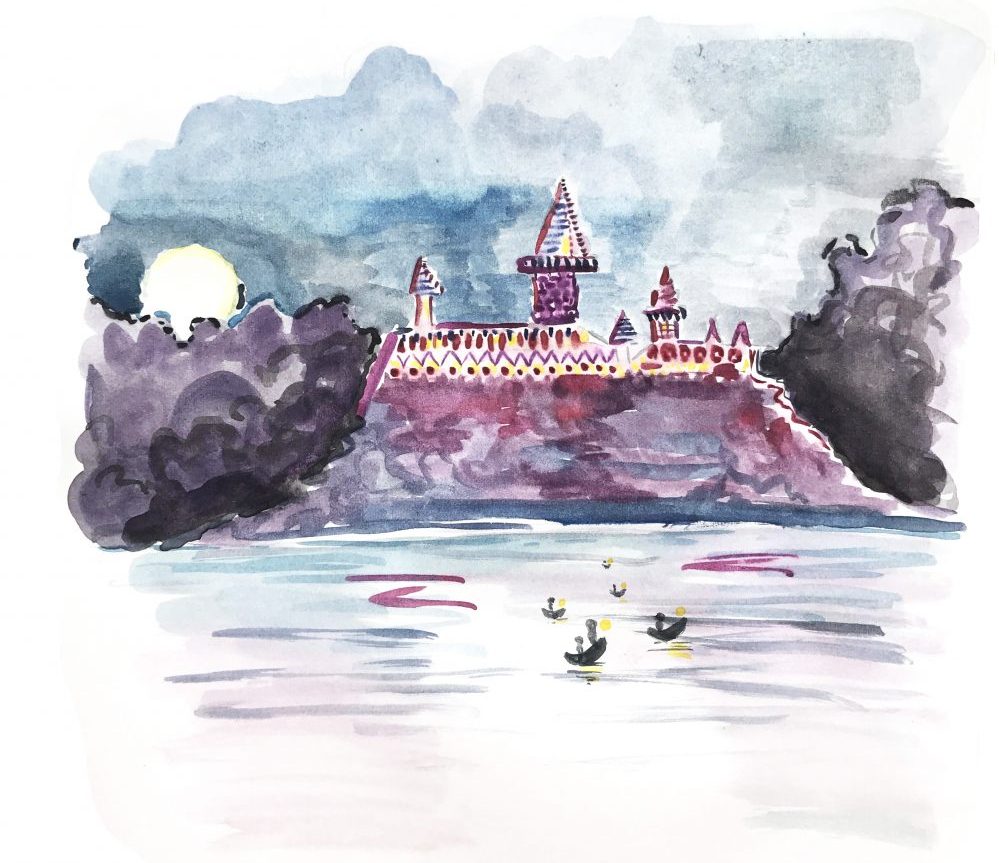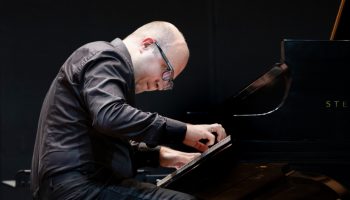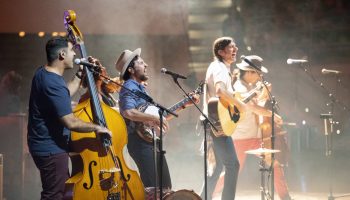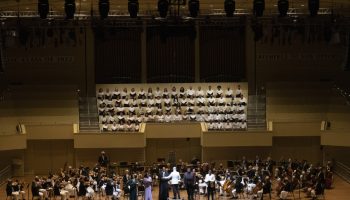
Gustav Mahler’s Third Symphony sets a pretty high bar for a conductor’s physical endurance, clocking in at about an hour and a half. Yet two back-to-back performances would only be about as long as the first installment in the Harry Potter film franchise.
“It’s a minimum of three hours in performance time,” said conductor Shih-Hung Young. “It’s a real physical feat.”
Young and the Chautauqua Symphony Orchestra will take on the physical and musical challenges of John Williams’ iconic score for “Harry Potter and the Sorcerer’s Stone” as they perform it live with the film at 8:15 p.m. Saturday in the Amphitheater.
The score that Young and the musicians will be reading doesn’t cut any corners.
“What we’re hearing is the final cut, exactly like if you watch it on DVD,” Young said.
The film will be projected above the musicians, who won’t be able to see the action on-screen. They also won’t get a click track, which provides audible cues for the musicians. To stay in sync with the film, the players will have to rely entirely on the swish and flick of Young’s musical direction.
“It’s kind of old-fashioned,” Young said. “I have a screen in front of me that has punches and streamers.”
A streamer is a vertical line that periodically slides across the conductor’s monitor. It lets the conductor know there is a musical “hit” coming up that must perfectly match something happening on-screen. The conductor’s subsequent downbeat should coincide with a punch, or a literal hole punched into the reel that flashes a blank dot on the image.
“It’s a niche, very specialized kind of conducting,” Young said. “Your lifeline is the film.”
Most orchestral musicians, unless they freelance as studio players, aren’t used to working this way.
“It’s a bit of a shell-shock. They quickly realize how little room I have to give,” Young said.
Warner Bros.’ consumer division licenses the film and music to CineConcerts, which in turn hires local orchestras to put on the events. CineConcerts staffs a number of experienced conductors like Young to lead the orchestra through the film’s score. To learn the score in just two six-hour rehearsals, each musician must bring a certain baseline musical ability.
“Notes and rhythm and musicality come with the gig,” Young said. “They should have that already.”
As far as the audience is concerned, everyone likely knows how the iconic score should sound. According to Young, that puts extra pressure on the musicians.
“The more iconic the music is, the more exposed we are. You really can’t screw up the whole celeste thing in the beginning,” Young said, referring to the lilting minor tune that carries over into the other Harry Potter films.
When he’s not conducting film scores live, Young performs and teaches violin at the Juilliard School Pre-College Division in New York City. He said the pressure of performing well-known music quickly dissipates and gives way to excitement.
“If I get to play an iconic passage, for me that’s the coolest thing,” Young said.
The familiarity of the music and the film is part of what attracts huge crowds to movie screenings with live orchestras. The movie concerts almost always sell out, which is far from the norm for classical or even pops series. As far as Young is concerned, the music is still the most important part of the experience.
“Even though it’s Harry Potter, we’re really featuring the music of John Williams,” Young said. “People will realize the importance of movie music and the way we can tell the story through that.”
When Young is on the podium, he tries to be as clear as possible without being mechanical. Without the tyranny of a click track, the conductor and orchestra have some musical freedom. The result is hopefully a more expressive and rewarding performance.
“You could do Harry Potter with click tracks,” Young said. “But I guarantee you the satisfaction for the musicians and the audience will be a little less magical.”





